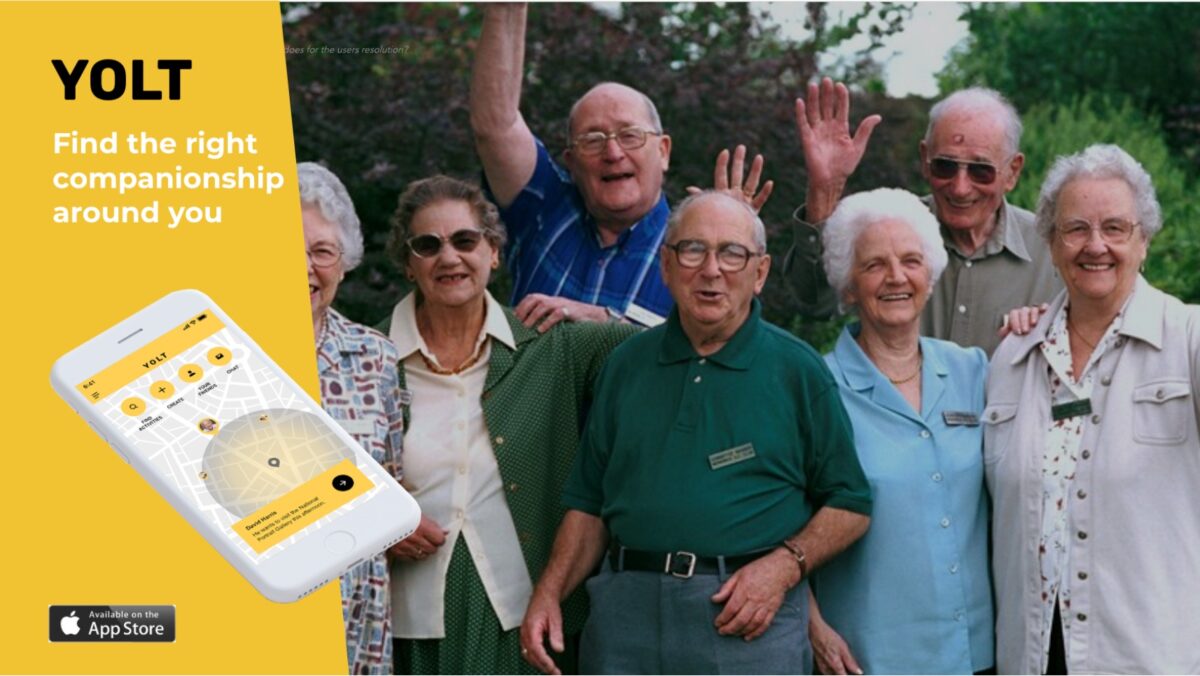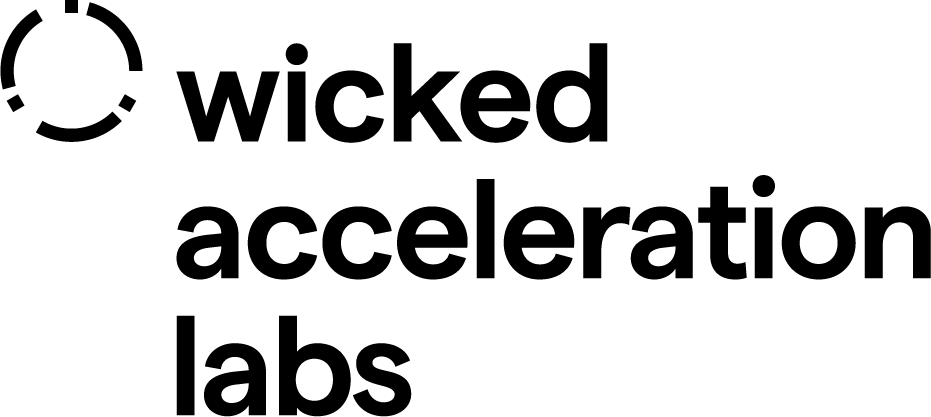
Yolt is a community building app that orchestrates group meetings online and offline by matching people based on the potential quality of a conversation not simply based on being similarly minded.
What is the problem
Yolt responds to the potential increase of the already dire condition of social isolation in the UK, particularly amongst the elderly. It also simultaneously responds to divisions in society brought about by populism and social media bubbles.
In terms of social isolation, people describe feeling less capable of forming new connections to each other. We can foresee that UK society may grow further toward being fundamentally geared for younger generations, regardless of the ageing of the general population. A reduction of welfare coupled with this societal inaccessibility could leave increasing numbers of elderly people further isolated, leading to poorer health, diminished community and further unhappiness.
longside this projection, we speculate that another trend may continue. We propose that due to the ‘bubble effects’ of social media and a potential growth in populist politicians, people may have more polarised views and less willingness to listen and be open to other people’s perspectives. In this scenario, we could see communities disintegrate further, with people feeling increasingly isolated, and public consensus and camaraderie becoming less and less possible.
How ‘Yolt’ responds
Yolt offers anybody who would value an increased sense of community the ability to connect with people who share the same need. It connects people based on opportunities that Yolt perceives as being potential spaces for healthy and meaningful conversation. These conversations are curated and guided by the context (i.e. the space) and group dynamics of the people it aims to bring together (people’s interests, the number of people, previous experiences with Yolt) and by the conversation starters and conversation curation that it offers to the dynamic between people. Yolt connects people that may otherwise have considered each other to be incompatible, thus expanding people’s perception of their own ability to access a community, companionship or even common ground.
Quickly helps you meet people:
Yolt shows you people in the area who are interested in topics that might interest you offering you an easy way to get involved straight away.
Stimulates conversation about important topics:
When you share topics on your profile that interest you, Yolt links you to other people who have related and diverse thinking and initiates conversation instantly.
Matches you with people you should know:
Yolt gradually learns about who you really are through AI powered personality assessments and matches you with people you would get along with, and with people who it is important to get along with.


What we
learnt
We demonstrated a low fidelity prototype of Yolt to high-need users and this is what we learned:
- The discussion that emerges around this proposition focuses mainly on the plausibility of being able to create digital tools that in turn create a positive dynamic and culture between people who may not have the same views.
- Although our participants hoped t it could be possible, they expressed that it would be immensely powerful and could reshape people’s perspectives of society, reducing isolation and division.
- As a broader issue, a larger set of questions emerged around what it might mean for our communities and our relationships if technology begins to have more sway in orchestrating them.

Comfortable disagreement not conflict
The main area of discussion arising from this concept was about the issues foreseen in its implementation. Most people felt sceptical that a service could create the right kind of culture where people didn’t interpret disagreement as conflict. People felt that although the app’s mechanisms to bring people together were really exciting, the idea of connecting people based on differences of opinion could be problematic, and that doing so in a group setting would be really challenging as group dynamics are often more intimidating for people. While the proposition makes allowances for this by learning about people before,during and after their interactions with other people, this would nonetheless be the biggest issue.
People were positive about the ideology of bringing people together in an environment where disagreements could be voiced and listened to. But everyone felt that they had not been heard and that others wouldn’t listen to them, with many people openly describing political correctness as being a confusing, inaccessible, judgmental and isolating force. It is clear that for a proposition like this to work, the principles of those services would have to be ingrained and upheld in as much user behaviour as possible.
In essence, the perception is that it would be overwhelmingly difficult to orchestrate an online or offline culture that would prevent users’ interactions from becoming conflicting and would likely create conflict and unpleasant experiences.
Tech changes culture
The counterargument to this claim is that the culture of existing, purely digital, social media platforms have created a climate that heightens the more combative elements of our, very natural human behaviours. If these environments are capable of influencing our interactive habits in this way, then surely this is evidence that, with the right design, they can indeed be redirected toward more constructive cultures.
Potential inauthenticity and distortion
Another discussion point around this proposition looks at it assuming that it can do exactly what it describes —bring people together and curate conversation that enables people to feel listened to and understood, even if not agreed with, and in this point we assume that this effective proposition would be adopted on a large scale – within this parameter we ask questions about the possibility of distorted public opinion and inauthenticity.
As with other propositions of this nature, there is nothing decidedly new about the idea of technology coordinating interactions between people, but what it alludes to is another more concerning progression —if large parts of our communities are brought together based on algorithms, and even those interactions and conversations are orchestrated based on algorithm design —we may be creating conditions for larger scale distortion of our ways of interacting. In turn, we may begin to question the authenticity of the interactions we have with other people. The question is, if a singular (albeit sophisticated) algorithm should flourish as a means of arranging our interactions, particularly around societal topics, could this be corrupted or have other effects of a similar calibre of existing social media (which often break down discussion)?
Our new direction of exploration
If this proposition is taken further, the strategic question of relevance to our investigations is more along the lines of:
How might we create online and offline social platforms that orchestrate preferred interpersonal dynamics and culture?








